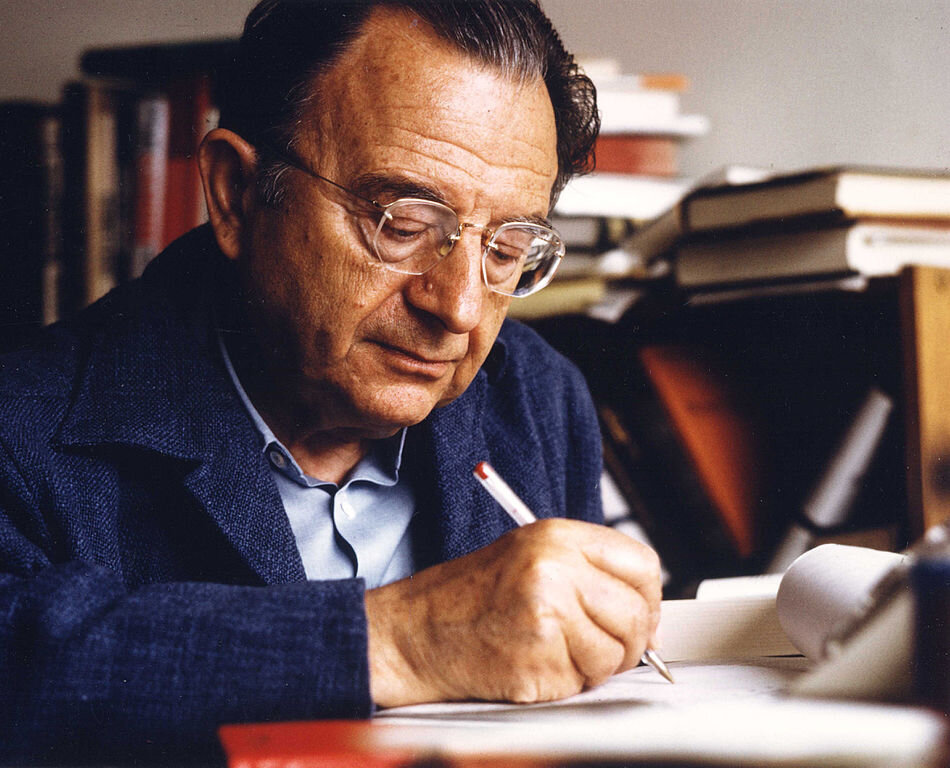It is difficult to think about education without thinking of love. In any of its meanings, “to educate” implies a search for the well-being of another, a quest that is similar to love. Without this, the correct term would not be “to teach” but to train, to instruct; whoever “educates” or “teaches” without thinking about the benefit of the other, is instructing.
Below, I will draw on the ideas of Erich Fromm (expressed in his book The Art of Loving, which, more than sixty years later, remains unsurpassed) to build ties between education and love. I especially stop to point out the four essential elements that, for him, are common to all forms of love: caring, responsibility, respect, and knowledge.
Caring is to be attentive that another has all the things necessary to ensure their survival. For love, someone takes care that a baby eats or that a pet (for those animal lovers) gets enough food and water. In education (I will focus here on schooling), the teacher, or the educational institution, makes sure that the student is provided with the intellectual, emotional, and physical resources (books, utensils, a suitable space to learn, etc.) so that the “nutrients” of the education that is given to him fall on fertile soil and bear fruit.
In a truthful “education,” this care is never given as an obligation imposed from the outside but as a completely voluntary act. Fromm calls this responsibility, which he describes as “responding to” the one he loves, or as we will call it, the one he teaches. He responds voluntarily for the loved one —the student— taking care of his or her needs, expressed or not. But, always prudent, Fromm also warns us that feeling responsible for others can easily fall into possessiveness or domination without the cultivation of the third component of love, namely, respect.
“Respect,” writes the German psychoanalyst, “denotes, according to the root of the word (respicere= to look), the ability to see a person as he is, to be aware of his unique individuality.” It means, therefore, considering the one whom I want to educate as someone different from me, someone with his own life process and whom I can only influence through tools of communication that respect his autonomy and assume that our relationship is first and foremost a free exchange. (Even the exercise of authority should be seen as an act of communication, in the sense that the application of rules and sanctions mobilizes the subject who receives them and motivates in him a response which, if it cannot be manifest immediately, will manifest itself sooner or later). “L’amour est l’enfant de la liberté” (Love is the child of freedom), says Fromm, quoting an old French song. We should say the same about education.
That to love is also to know is apparent from the three elements above. Caring, responding, and respecting imply identifying the needs of the other and, therefore, knowing him. In this process, the teacher or institution begins by establishing a standard of human needs to create an appropriate educational space; but sooner or later the one who educates faces the necessities of real individuals (not standardized) and sees in himself the need to know the other more deeply, identifying their particularities, that is, the individuality that makes them unique.
But how deep can the other be known? Here we arrive at what seems to be (at least to me) the most brilliant and always current point of Erich Fromm’s text concerning these four essential elements. It has to do with the limits of knowledge, specifically scientific knowledge, which here we can apply to the so-called sciences of education. For Fromm, rational knowledge has a limit, and it must be accepted that the models of science and philosophy cannot encompass the whole mystery of reality and existence.
So, an educator has to accept that, however endeavoring his attempt may be to control the variables of the educational process and be guided by a true science of this, at the end, when all the variables are indeed under control, there remains in front of him a territory not only unknown but unknowable (let us call it transcendent), which he will only be able to enter if is willing to take certain risks. To reduce these risks, sages like Fromm provide tools and explain terms like care, respect, responsibility, and knowledge. But in the end, they leave us alone to face the acceptance that there will always be a point where reason will remain silent. From there, each educator must undertake his own mysterious form of human expansion known as Love. On the territory of authentic education, it is, ultimately, his only safe conduct.
Educating is an act that uses love to fill the unknown.
Translation by Daniel Wetta.
Disclaimer: This is an Op-ed article. The viewpoints expressed in this article are the author’s own and do not necessarily reflect the opinions, viewpoints, and official policies of Tecnológico de Monterrey.
This article from Observatory of the Institute for the Future of Education may be shared under the terms of the license CC BY-NC-SA 4.0 
)
)


)